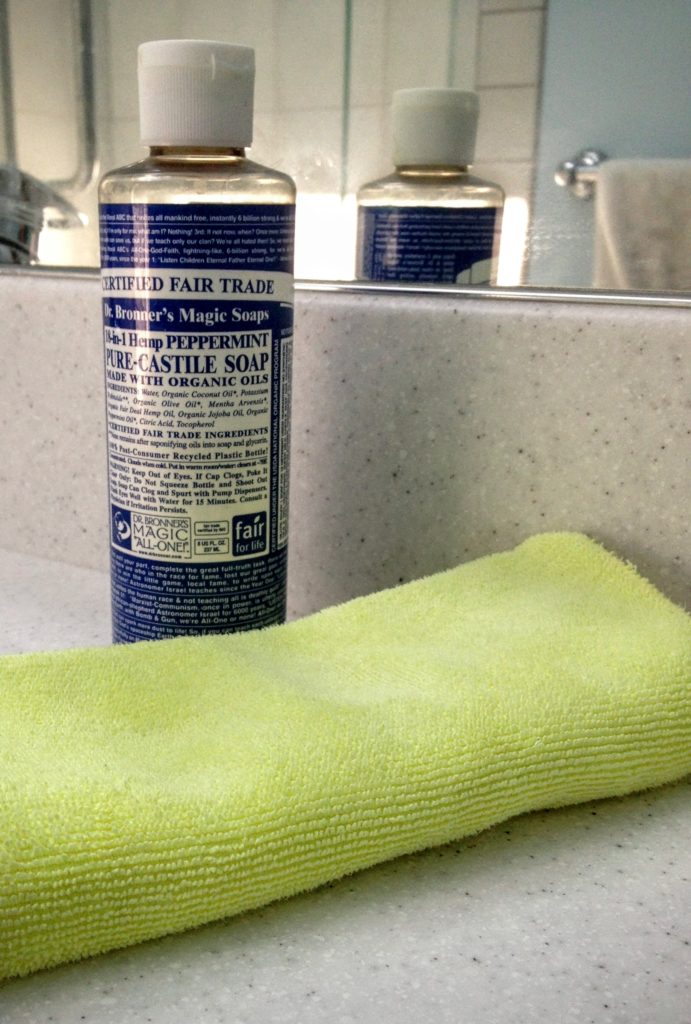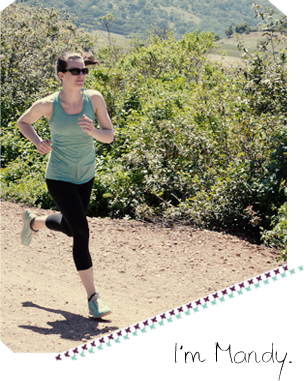Simple Bathroom Cleaning Guide
You don’t need caustic chemicals and piles of cleaners to effectively clean your bathroom. This simple bathroom cleaning guide will show you how to clean your whole bathroom with safe, sustainable cleaners. The best part? You can have the room clean, top to bottom, in 15 minutes or less.
Bleach, ammonia, and other harsh chemicals are damaging to the environment and you. Bleach can burn your lungs and your skin as you clean. Other cleaners are full of chemicals that are known to cause reproductive or developmental problems and cancer. Most companies do not put their full list of ingredients on the label.
There aren’t laws that require cleaning products to be tested for health or environmental safety. These toxic chemicals not only leave behind residue in your home, they are washed down the drain where they cannot be pulled out by most water treatments. Instead, they end up in our waterways.
While you can look up the safety of your products here, the homemade cleaners and castile soap I recommend here are safe for you and for the environment. They also work just as well (if not better) as what you can find on the store shelves.

What You Need
Microfiber Cloth
These things are pure magic. While I wish they were made from natural materials, I think their longevity and their cleaning power more than make up for it. I was gifted some of my mom’s microfiber cloths when I went to college, and they are still going strong. My mom still uses the same ones she bought more than 10 years ago.
Microfiber cloths can be used for just about anything. They won’t scratch the surface or leave behind lint. I use them to remove hard water, clean the glass shower doors, and just about everything else. I use microfiber cloths for their scrubbing power and their antimicrobial properties. They can cut through thick soap scum better than most cleaners.
If you are really against microfiber, feel free to use a cloth towel or any rag, but be prepared to put more muscle into it.
Toilet Brush
The one you have is the best one to use. If you are looking for a new one, consider going for sustainable materials (like this one) or one where you can just replace the head of the brush (like this).
Castile Soap
I use liquid for convenience, but you can also use a bar. It is a safe, non-toxic cleaner, and I swear it cleans better than most conventional cleaners on the market. You don’t need bleach to safely clean your bathroom.
Small Towel
An old kitchen towel, t-shirt, or just about any other absorbent rag will work. You just need something to dry the top of the counter and any fixtures.
Reusable Gloves
Totally optional, but I use an old pair of dish gloves. I bought thick gloves that last really well. They are years old at this point and still work great.
Simple Bathroom Cleaning Guide: Mirrors/Glass
What you need:
– Warm water
– Microfiber cloth
– Small towel
All you need is water to get a streak-free mirror. Simply wet the microfiber cloth in hot or warm water and wring it out until it’s mostly dry. Wipe down the mirror or glass surface, and dry it quickly with another microfiber cloth or a small rag towel. The microfiber cloth works great for cleaning the glass because it doesn’t hold too much water or leave lint behind. However, if you are trying to stick to only natural fibers, a cotton cloth would work just fine.
Bathroom Sink and Tub
What you need:
– Liquid or solid castile soap
– Microfiber cloth
– Optional: small towel to dry
A half teaspoon or so of castile soap will do the whole sink. Wet the rag and squirt your castile soap straight into the plugged sink or onto the rag. Scrub and then rinse down the rag and the sink.
For the tub or shower, wet the surface slightly before squirting some castile soap into the bottom. I usually use as little as possible (about a teaspoon full) and squirt more if I need it. Then scrub the tub with the soap and the moist microfiber cloth.
I rarely, if ever, need anything other than the microfiber cloth and the castile soap, but if you have soap scum or mildew that just won’t budge, you can shake a little baking soda on the surface. It will not only help physically scrub the surface, but it will help break up the soap scum.
Toilet
What you need:
– Liquid or solid castile soap
– Microfiber cloth
– Toilet brush
Squirt a little bit of castile soap (less than a teaspoon) into the toilet bowl and scrub down the insides with the brush. When you are done, use the damp microfiber cloth to wipe down the toilet. Start with the seat, then wipe down the rim to the floor.
The castile soap will take away water marks, mildew, and discoloration. You might have to scrub a little harder if it’s really on there or let it the castile soap sit for a bit after you scrub some to get it all off.
Floor
What you need:
– Microfiber cloth
– Homemade floor cleaner
Start with a damp rag and spray down the floor as you clean it with the floor cleaner. I like to work my way towards to the toilet (cleanest to dirtiest), but if that’s not possible, work your way out to the doorway.
Order of Operations
Before you get down and dirty, you need a game plan. I safely and effectively clean my whole bathroom with one or two rags with this method.
1. Mirror. Use a fresh microfiber cloth and clean your mirror.
2. Sink. Use the same rag and some castile soap to clean the sink.
3. Tub. Once the sink is wiped down and the rag is rinsed out, move on to the tub.
4. Toilet. As the dirtiest thing in your bathroom, this gets the last cleaning. When you are done, so is the rag. Do not use the rag again after wiping down the toilet.
5. Floor. New rag! If I am tag teaming the bathroom cleaning, the person who cleans the sink usually does the floor with the same rag while the other person washes the tub and toilet.













